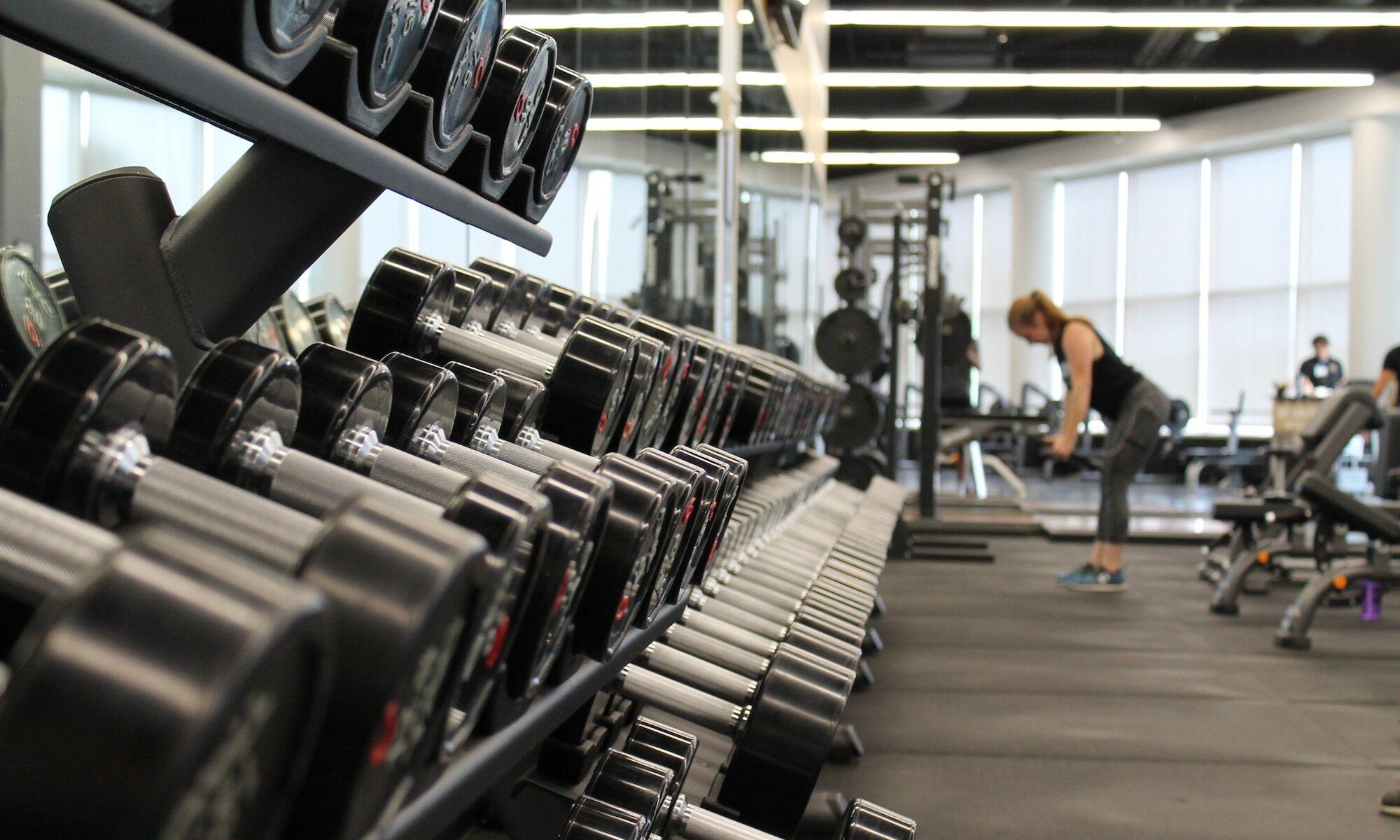If you’re an athlete looking to optimize your performance and fitness levels, understanding the role that hormones play is key. Hormones, the chemical messengers in our bodies, have a significant impact on various aspects of our health, including muscle growth, energy levels, and recovery. In this article, we will highlight ten essential things that every athlete should know about hormones and how they can influence athletic performance and overall fitness. By gaining a deeper understanding of the intricate relationship between hormones and fitness, you’ll be equipped with valuable knowledge to enhance your training and reach your athletic goals.
The Role of Hormones in Fitness
As an athlete, you may be familiar with the importance of a balanced diet, regular exercise, and adequate rest for your overall fitness. However, what you may not realize is that hormones play a crucial role in your fitness journey. Hormones are chemical messengers that are responsible for regulating various functions in the body. They affect everything from metabolism and muscle growth to sleep and stress levels. Understanding the basics of hormones and their impact on your fitness goals can help you optimize your performance and achieve better results.
The Basics of Hormones
Hormones are produced by various glands in the body, such as the pituitary, thyroid, adrenal, and reproductive glands. These glands release hormones into the bloodstream, where they travel to different parts of the body and bind to specific receptors. Each hormone has its own unique function and target tissues. Some of the key hormones involved in fitness include testosterone, estrogen, growth hormone, cortisol, and insulin.
Hormonal Balance and Exercise
Maintaining hormonal balance is crucial for overall health and optimal athletic performance. When your hormones are in balance, your body functions properly, and you feel your best. However, imbalances in hormone levels can have negative effects on your fitness progress. For example, an imbalance in testosterone levels can lead to decreased strength and muscle mass, while high levels of cortisol, the stress hormone, can hinder recovery and muscle growth. Exercise plays a vital role in maintaining hormonal balance by stimulating the production of certain hormones and regulating their levels.
Hormonal Response to Exercise
Exercise triggers a hormonal response in the body. As you engage in physical activity, your body releases hormones such as endorphins, serotonin, and dopamine, which are responsible for the “feel-good” sensations commonly associated with exercise. Additionally, during intense exercise, your body produces growth hormone, which plays a role in muscle growth and repair. The duration, intensity, and type of exercise can influence the hormonal response, so it’s important to find a balance that works for you.
Effects of Hormones on Performance
Hormones have a significant impact on athletic performance. Understanding how hormones affect your performance can help you tailor your training and optimize your results.
Testosterone and Strength
Testosterone is often referred to as the “male hormone,” but it is present in both men and women, although in different quantities. Testosterone plays a crucial role in muscle growth, strength, and power. Higher testosterone levels are associated with increased muscle mass, improved strength, and enhanced athletic performance. Resistance training and high-intensity workouts can help naturally boost testosterone levels in both men and women.
Estrogen and Performance
Estrogen is the primary female sex hormone, but it also exists in males, although in smaller amounts. Estrogen plays a vital role in bone health, collagen synthesis, and joint protection. It also affects energy levels and recovery. Optimal estrogen levels can improve endurance, while imbalances can lead to decreased performance. Balancing estrogen levels through proper nutrition and avoiding excessive stress can help female athletes maintain optimal performance.
Growth Hormone and Muscle Growth
Growth hormone (GH) is responsible for promoting growth and repair in the body. It plays a crucial role in muscle growth, tissue repair, and fat metabolism. High-intensity exercise, such as weightlifting and interval training, can boost growth hormone levels, leading to increased muscle growth and improved body composition.
Importance of Nutrition and Hormones
Nutrition plays a vital role in maintaining hormonal balance and optimizing athletic performance. The food you eat provides the building blocks for hormone production and influences how your body responds to exercise. Making healthy food choices can support hormone production, absorption, and regulation.
Hormones and Nutrient Absorption
Hormones can impact the body’s ability to absorb and utilize nutrients. For example, insulin, a hormone produced by the pancreas, regulates blood sugar levels and facilitates the absorption of glucose into cells. Consuming a balanced diet that includes a variety of essential nutrients helps support hormone function and ensures proper nutrient absorption.
Effects of Nutrient Deficiencies on Hormonal Balance
Deficiencies in certain nutrients can disrupt hormonal balance and negatively impact athletic performance. For example, low levels of vitamin D have been linked to decreased testosterone levels, while inadequate intake of essential fatty acids can impair hormone production. Ensuring you consume a nutrient-rich diet, or considering supplementation under the guidance of a healthcare professional, can help prevent nutrient deficiencies and support hormonal balance.
Food Choices for Hormonal Health
Including hormone-healthy foods in your diet can provide the necessary nutrients to support optimal hormone production and balance. Foods rich in zinc, magnesium, vitamin D, essential fatty acids, and antioxidants can be particularly beneficial for hormone health. Examples include lean protein sources like chicken and fish, leafy greens, nuts and seeds, and fruits such as berries. Consuming a well-rounded diet with a variety of whole foods can support hormonal health and enhance your athletic performance.
Sleep and Hormonal Regulation
Sleep plays a crucial role in maintaining hormonal balance and supporting overall health. It is during sleep that your body repairs tissues, releases growth hormone, and restores energy levels. Prioritizing quality sleep can positively influence hormone levels and contribute to better athletic performance.
The Importance of Sleep for Hormonal Balance
Lack of sleep can disrupt the delicate balance of hormones in your body. Sleep deprivation has been linked to increased levels of cortisol, the stress hormone, and decreased levels of growth hormone. These hormonal imbalances can hinder muscle recovery, impair cognitive function, and lead to decreased athletic performance. Adequate sleep, typically around 7-9 hours for adults, allows your body to regulate hormone levels and function optimally.
Impact of Sleep Deprivation on Hormones
Chronic sleep deprivation can lead to long-term hormonal imbalances and negatively impact overall health. Lack of sleep has been associated with decreased insulin sensitivity, increased appetite, and weight gain. It can also affect testosterone levels, leading to decreased muscle strength and recovery. Prioritizing sufficient sleep and creating a bedtime routine that promotes relaxation can have a significant impact on your hormone balance.
Sleep Strategies for Optimal Hormonal Health
Implementing good sleep practices can help improve your hormonal health and enhance your athletic performance. Creating a sleep-friendly environment, such as keeping your bedroom dark and quiet, disconnecting from electronic devices before bed, and establishing a consistent sleep schedule, can aid in better quality sleep. Relaxation techniques such as meditation and deep breathing exercises can also help promote a calm and restful state before bedtime.
Stress and Hormonal Imbalance
Stress, whether psychological or physical, can disrupt hormone balance and impact athletic performance. Understanding the effects of stress on hormones and implementing strategies to manage stress can contribute to better overall health and athletic success.
Effects of Chronic Stress on Hormones
Chronic stress triggers the release of cortisol, commonly known as the stress hormone. High levels of cortisol can lead to muscle breakdown, impaired recovery, increased inflammation, and decreased immune function. Prolonged stress can also disrupt the balance of other hormones in the body, such as thyroid hormones and sex hormones. Minimizing stress through proper stress management techniques can help maintain hormonal balance.
Hormonal Changes due to Exercise-Induced Stress
Exercise itself is a form of stress on the body. While acute exercise can have positive effects on hormone levels, excessive or intense exercise without proper rest and recovery can lead to hormonal imbalances. Overtraining can result in elevated cortisol levels, decreased testosterone levels, and increased risk of injury. Balancing exercise intensity and duration with adequate recovery time is essential for maintaining hormone balance and preventing negative effects on athletic performance.
Strategies to Manage Stress for Hormonal Health
Incorporating stress management strategies into your daily routine can help minimize the negative impact of stress on hormone balance. These strategies include practices such as mindfulness meditation, deep breathing exercises, yoga, and engaging in hobbies or activities that promote relaxation and stress relief. Adequate rest and recovery, as well as maintaining a healthy work-life balance, are also crucial for managing stress and maintaining optimal hormonal health.
Female Athletes and Hormonal Health
Female athletes face unique challenges when it comes to hormonal health. The menstrual cycle, birth control methods, and menopause can all influence hormone levels and impact athletic performance. Understanding these hormonal changes and their effects can help female athletes optimize their training and overall health.
Effects of Menstrual Cycle on Performance
The menstrual cycle is associated with fluctuations in hormone levels, including estrogen and progesterone. These hormonal changes can affect energy levels, endurance, and strength throughout different phases of the cycle. Some female athletes may experience decreased performance during certain phases, while others may find that their performance improves. Tracking your menstrual cycle and adjusting your training accordingly can help you optimize your performance throughout the month.
Birth Control and Hormonal Balance
Many female athletes use hormonal contraceptives to regulate their menstrual cycle. Birth control pills, patches, injections, and intrauterine devices (IUDs) can all impact hormone levels and potentially influence athletic performance. It’s important for female athletes to discuss their birth control options with a healthcare professional who understands the unique needs of athletes and can help find a method that minimizes any negative impact on performance.
Menopause and Hormonal Changes
As women enter menopause, their hormone levels, particularly estrogen, naturally decline. Menopause can result in changes in body composition, bone density, and energy levels. It’s important for women approaching menopause to monitor their hormone levels and consult with a healthcare professional to optimize hormone balance and manage any symptoms that may affect their athletic performance or overall well-being.
The Role of Age in Hormonal Health
Age is another factor that can influence hormonal health and athletic performance. Hormonal changes occur throughout different stages of life, from puberty to aging. Understanding how age-related hormonal changes can impact your body and performance can help you make informed decisions.
Hormonal Changes during Puberty
Puberty is a stage of rapid physical and hormonal changes. During this time, hormone levels, such as testosterone and estrogen, increase significantly, contributing to growth spurts and the development of secondary sexual characteristics. These hormonal changes can also impact athletic performance, with increased muscle mass and strength observed in both boys and girls. It’s important to support young athletes going through puberty with proper nutrition, rest, and a balanced training program.

Hormonal Decline with Age
As individuals age, hormone levels gradually decline. For men, testosterone levels start to decline around the age of 30, leading to decreased muscle mass, strength, and energy levels. Women also experience hormonal changes with age, including a decline in estrogen levels during menopause. These age-related hormonal changes can impact athletic performance and overall well-being. Regular exercise, a healthy diet, and hormone replacement therapy, when appropriate and under medical supervision, can help mitigate the effects of hormonal decline.
Hormone Replacement Therapy for Aging Athletes
Hormone replacement therapy (HRT) is a medical treatment that involves restoring hormone levels to more youthful levels. In the context of fitness, HRT may be considered for aging athletes who are experiencing the negative effects of hormonal decline. However, HRT should always be approached with caution and under the guidance of a healthcare professional who specializes in hormone therapy. Hormone replacement therapy carries potential risks and side effects, and the benefits and appropriateness of this treatment should be thoroughly evaluated on an individual basis.
Supplements and Hormonal Health
In the quest for better hormonal health and enhanced athletic performance, some athletes turn to hormonal supplements. However, it’s important to approach these supplements with caution and consider the potential risks and side effects.
Effectiveness of Hormonal Supplements
Hormonal supplements, such as testosterone boosters and growth hormone enhancers, claim to enhance hormonal balance and optimize performance. However, the effectiveness of these supplements is often debated, and scientific evidence supporting their benefits is lacking. It’s essential to critically evaluate the claims made by manufacturers and consult with a healthcare professional before incorporating hormonal supplements into your regimen.
Risks and Side Effects of Hormonal Supplements
Hormonal supplements come with potential risks and side effects. Unregulated or excessive use of these supplements can disrupt natural hormone production and lead to imbalances. Some side effects include liver damage, cardiovascular issues, hormonal imbalances, and negative impacts on mental health. It’s important to consider the potential risks and benefits before deciding to use hormonal supplements and to consult with a healthcare professional who can provide personalized guidance based on your specific needs and goals.
Natural Options for Boosting Hormonal Health
Rather than relying on hormonal supplements, focusing on natural strategies for hormone optimization can be a safer and more sustainable approach. These strategies include maintaining a healthy lifestyle, consuming a nutrient-rich diet, managing stress levels, prioritizing proper sleep and recovery, and engaging in regular exercise. By addressing these foundational factors, you can support your body’s natural hormone production and balance.
Monitoring and Managing Hormonal Health
Monitoring your hormonal health is essential for optimizing athletic performance and overall well-being. Regular hormone testing and working with a healthcare professional who specializes in hormone health can provide valuable insights and guidance.
Hormone Testing for Athletes
Athlete-specific hormone testing can help identify potential imbalances and provide a baseline for monitoring progress. Tests can assess hormone levels, including testosterone, estrogen, cortisol, and thyroid hormones. Hormone testing can be done through blood, saliva, or urine samples. It’s important to consult with a healthcare professional to determine the most appropriate testing method and to interpret the results accurately.
Hormonal Imbalances and Performance
Identifying and addressing hormonal imbalances can have a significant impact on athletic performance. Hormonal imbalances, such as low testosterone or elevated cortisol levels, can hinder progress and lead to suboptimal performance. By working with a healthcare professional, you can develop a customized plan to address any imbalances and optimize your hormone levels for improved performance.
Working with a Healthcare Professional
Managing hormonal health requires a comprehensive and individualized approach. Consulting with a healthcare professional who specializes in hormone health is essential for understanding your unique hormone profile, interpreting test results accurately, and developing a personalized plan to optimize your hormonal health. A healthcare professional can guide you through lifestyle modifications, nutritional choices, and, if necessary, medications or therapies to support your hormone balance and overall well-being.
Balancing Hormones and Long-Term Health
Balancing hormones is not only crucial for athletic performance but also for long-term health and well-being. Hormonal imbalances can lead to a range of health issues, including metabolic disorders, cardiovascular disease, and mood disturbances. Prioritizing hormone health can help prevent these imbalances and support your overall well-being.
The Impact of Hormonal Health on Overall Well-being
Hormonal health is closely linked to overall well-being. Balanced hormone levels not only promote optimal athletic performance but also contribute to energy levels, mood stability, cognitive function, and sleep quality. By nurturing your hormonal health, you can enhance your overall quality of life and maintain long-term physical and mental well-being.
Preventing Hormonal Imbalances and Associated Risks
Prevention is key when it comes to hormonal imbalances and associated risks. By implementing healthy lifestyle practices such as regular exercise, balanced nutrition, adequate sleep, stress management, and regular monitoring of hormone levels, you can minimize the risk of hormonal imbalances and their potential negative effects. It’s important to take a proactive approach to hormone health and prioritize self-care to prevent long-term health complications.
Lifestyle Factors for Maintaining Hormonal Balance
Several lifestyle factors can contribute to maintaining hormonal balance. Regular exercise, particularly strength training and high-intensity workouts, can help regulate hormone levels and promote optimal function. Prioritizing a nutrient-rich diet that includes a variety of whole foods supports hormone production and absorption. Adequate sleep and stress management techniques, such as mindfulness and relaxation exercises, help regulate cortisol levels and support optimal hormone balance. By incorporating these lifestyle factors into your daily routine, you can maintain hormonal balance and support your long-term health.
In conclusion, hormones play a crucial role in your fitness journey as an athlete. Understanding the basics of hormones, their effects on performance, and the importance of nutrition, sleep, stress management, and age-related changes in hormone health can help you optimize your athletic performance and overall well-being. By working with a healthcare professional and taking a holistic approach to hormone health, you can maximize your fitness potential and achieve long-term success. Remember, taking care of your hormones is taking care of yourself.


